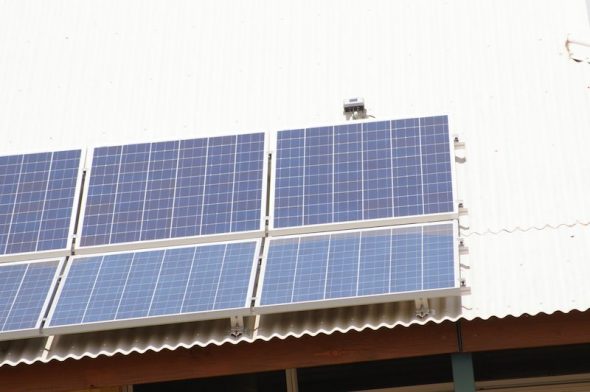|
By Giles Parkinson on 9 August 2017 One Step Off The Grid Euro Solar – the biggest seller of solar panels in Australia – has been forced by the Clean Energy Regulator to surrender small-scale technology certificates (STCs) or replace modules after being found to have installed non-compliant solar panels. P & N NSW Pty Ltd, which trades as Euro Solar, was found by the CER to have claimed STCs from non-compliant panels on 10 different rooftop solar installations. In total, this amounted to 1,058 STCs worth around $40,000.
In order to “address its conduct”, the CER says P & N has been asked to validate serial numbers on solar modules for a further 78 installations within 12 months, and for a further 100 installations within 18 months. All the installations have been identified by the CER. If those installations are found to contain non-compliant panels, P & N will have to either replace those panels or surrender STCs if the homeowners don’t consent to the change. The STC bill could amount to $500,000 if none are compliant. The CER says the move against P & N is part of a crackdown on rules in the SRES, which provides up-front rebates for rooftop solar installations. To qualify for STCs, solar panels need to have been approved and validated by the Clean Energy Council. “We are rolling out an innovative compliance program that reaches out into the small-scale technology certificate (STC) creation chain to detect the installation of unapproved panels, which are not eligible for STCs,” the CER says. Euro Solar has taken a leading position in the Australian solar market because of its deep discounts, the scale of which surprises many competitors. “P & N NSW Pty Ltd’s compliance procedures did not identify, at the time of STC creation, that the solar PV panels were non-compliant solar PV panels,” the CER said in its statement. As part of its enforceable undertaking, P & N has committed to validating the other installations and will report to the CER on a monthly basis. It will also fund the Clean Energy Regulator’s testing of four solar PV panels – randomly selected by the CER – held by P & N NSW Pty Ltd to determine whether the panels have the necessary attributes for accreditation or continuing accreditation. The CER says enforceable undertakings can be sought in cases to prevent or address serious non-compliance. “Enforceable undertakings are written statements from a person or organisation that they will do, or refrain from doing, certain things in order to resolve detected contraventions or improve compliance with the legislation,” it says. The intervention from the CER comes amid growing concerns within the industry about the standards and behaviours of some installers, the quality of some merchandise imported – such as solar panels and inverters – and the need for an awareness program for consumers. This is something that we go into in detail in our first Solar Insiders podcast with solar industry veteran Nigel Morris, of monitoring software company Solar Analytics, where we discuss some of the quality control issues in the rooftop solar industry. Morris says the Australian solar industry has been very successful, with more than 1.7 million installations, and nearly 6GW of rooftop solar panels, most of them perfectly fine and performing well. But no other country has installed such a large percentage of “cheap” solar. Why is this? Possibly because of the Australian eye for a discount, possibly because Australians turn over housing stock more quickly than people in Europe or north America. There is even a Facebook page called “Crap Solar” put together by installers appalled at instances of lousy workmanship. This has implications for consumers which are worth noting. The Solar Insiders podcast can be found here. The solar industry has been calling for a crackdown on poor quality installations, and more surveillance of solar panels – almost all of which are imported from overseas – to ensure they are compliant. “The Clean Energy Regulator takes fraud and deliberate non-compliance seriously and takes necessary action to ensure the integrity of the scheme,” the CER said in its statement. “SRES participants who are involved in the installation of unapproved panels will be subject to enforcement action by the Clean Energy Regulator. (SRES is the small-scale renewable energy scheme which governs rooftop solar installations up to 100kW). “We have a broad range of compliance and enforcement options, including suspension of registration and REC Registry accounts, enforceable undertakings and criminal or civil proceedings.” The CER says it has partnered with the solar industry and peak bodies to allow consumers, along with installers and retailers, to use a new Solar Panel Validation Pilot to check the validity of solar panels. Participating manufacturers will provide serial number data that will allow installers, retailers and consumers to validate panels. The CER says STCs created using validated panel data will deliver a higher level of confidence to the Clean Energy Regulator. STCs created without validated data will be examined more closely under our compliance processes and if found to be unapproved subject to enforcement action. This article was originally published on RenewEconomy’s sister site, One Step Off The Grid, which focuses on customer experience with distributed generation. To sign up to One Step’s free weekly newsletter, please click here.
2 Comments
Leave a Reply. |
|


 RSS Feed
RSS Feed


